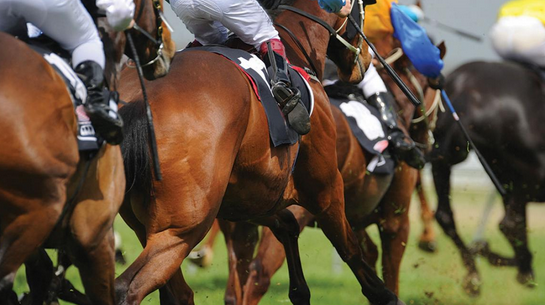
1 Nov, 2017
Australian study reveals startling stats on gambling-related mental & health problems
Canberra, 26 October 2017, (Australian Institute of Family Studies Media release) – Nearly one million Australians regularly gamble on horse and dog racing with a high proportion of them experiencing one or more gambling-related problems, according to new analysis by the Australian Gambling Research Centre (AGRC), Australian Institute of Family Studies (AIFS).
AGRC researcher, Dr Andrew Armstrong said the analysis found an estimated 41 per cent of Australians who regularly bet on the races experienced gambling-related problems such as financial pressures, relationship issues and health problems.

Dr Armstrong said regular race bettors – those who placed a bet at least once a month – were twice as likely to experience gambling-related problems as the average Australian regular gambler.
“Our analysis found that almost a quarter of regular race bettors had moderate to severe gambling problems,” he said.
“Of these, close to a quarter of race bettors gambled more than they could afford to lose with 24 per cent of gamblers going back the next day to try and win back the money they had lost.
“For 10 per cent of race bettors, gambling had caused physical or mental health problems stemming directly from their overall gambling activity.
“Well over one third of all households with a race bettor with severe gambling problems had to ask family and friends for financial help while another third could not pay the electricity, gas or telephone bills on time. More than a quarter could not pay the rent or mortgage on time.”
Dr Armstrong said on average race bettors spent around half their gambling outlay on race betting and half on other gambling activities.
“Our analysis shows that a person regularly betting on the races spent $179 a month on gambling or $2,146 over the year, with half of this being spent on horse or dog racing,” he said.
“The remaining gambling expenditure was mostly spent on buying lotto tickets, sports betting and playing the pokies.
“Not surprisingly, race bettors who experienced gambling-related problems spent much more on gambling than those who did not experience problems. However, the size of the spending gap is staggering. Those with severe problems spent up to four times as much on racing over the year and five times as much on gambling overall.”
Dr Armstrong said the analysis found regular racing bettors were overwhelmingly male and aged between 30 and 64 years old, while those experiencing gambling problems were typically single men who lived in rented premises.
“With the Spring Racing Carnival about to commence, regular race bettors should consider their financial position carefully and seek help if they are concerned they are at risk of gambling-related problems,” he said.
The national gambling help services provides support and information 24/7, by phone (1800 858 858), and online (gamblinghelponline.org.au).
Read the full Research Summary: Race betting in Australia.



Liked this article? Share it!